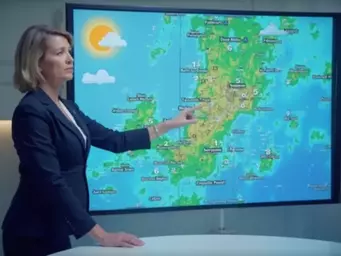A career in meteorology isn’t just about predicting the weather; it's about understanding our environment and its impacts. As you embark on this path, consider the diverse opportunities that await you in this dynamic field.
What You Will Learn
- Meteorology is essential for daily life, helping us prepare for unpredictable weather events.
- Choosing the right meteorology course involves considering accreditation, curriculum focus, and industry connections.
- Understanding weather science can significantly influence sectors such as agriculture, tourism, and urban planning.
- Gaining practical experience through internships or field studies is crucial for a successful career in meteorology.
- Numerous scholarships are available specifically for aspiring meteorology students to ease their financial burden.
- Engaging with educational institutions can provide invaluable information and guidance about course options and career paths.
Key Considerations for Meteorology Courses in Australia
When choosing a meteorology course, consider these three critical factors to ensure it aligns with your career goals and interests.
Accreditation & Recognition
Ensure the course is recognized by relevant professional bodies for career validity.
Curriculum Focus
Look for programs emphasizing both theoretical knowledge and practical hands-on skills.
Industry Connections
Programs with strong ties to the meteorological community offer invaluable networking opportunities.
Scholarship Opportunities
Explore financial aid options like government or university-specific scholarships to ease burden.
Understanding Meteorology Courses in Australia
As a dedicated meteorologist, I often get asked, “What is meteorology and why should I study it?” Meteorology is the scientific study of the atmosphere, focusing on weather processes and forecasting. For those of us passionate about understanding the environment, pursuing meteorology can lead to a fulfilling career where we can make a real impact!
Studying meteorology is about more than just predicting whether it will rain or shine. It allows you to dive deep into the complexities of our climate, analyze data trends, and understand how weather affects various sectors, from agriculture to disaster management. What drives your interest in weather science? Whether it’s the thrill of forecasting or a desire to contribute to climate awareness, this field offers diverse pathways!
What is Meteorology and Why Study It?
Meteorology is crucial for our daily lives. By studying the atmosphere, we can anticipate weather changes and prepare for natural disasters. This knowledge is essential, especially in a country like Australia, where weather patterns can be unpredictable!
- Forecasting Weather: Meteorologists provide daily forecasts that help individuals and businesses plan their activities. For example, the Bureau of Meteorology (BOM) offers comprehensive meteorological training, which is foundational for forecasting roles.
- Climate Research: Understanding climate change impacts is vital for developing sustainable practices.
- Emergency Management: Meteorologists play a key role in disaster preparedness and response, as highlighted in resources like the Meteorology for Disaster Managers Masterclass.
Each of these aspects highlights the importance of weather science in society. As you consider your study options, think about how you want to contribute to this dynamic field!
Key Considerations for Choosing the Right Meteorology Course
When selecting a meteorology course in Australia, several factors are worth considering. It’s essential to choose a program that aligns with your career goals and personal interests. Here are a few points to reflect on:
- Accreditation: Ensure the course is recognized by relevant professional bodies.
- Curriculum Focus: Look for programs that emphasize both theoretical knowledge and practical skills.
- Industry Connections: A course with strong ties to the meteorological community can provide invaluable networking opportunities. The Graduate Diploma in Meteorology, for instance, is a recognized pathway for aspiring meteorologists in Australia.
Thinking critically about these aspects will help you find a course that not only meets your educational needs but also sets you up for success in your meteorology career!
Overview of Weather Science and Its Importance
Weather science is an integral part of our lives, influencing everything from daily activities to global economies. By understanding weather patterns and phenomena, meteorologists can provide insights that affect agriculture, tourism, and even urban planning. Imagine being the person who helps a farmer decide the best time to plant crops based on weather forecasts!
- Public Safety: Accurate weather predictions can save lives by preparing communities for severe weather events.
- Economic Impact: Industries like agriculture, aviation, and construction heavily rely on meteorological data.
- Environmental Conservation: Meteorologists contribute to understanding climate change and its effects on ecosystems.
Recognizing the significance of weather science can inspire you to explore this fascinating field further. Are you ready to take the plunge into meteorology and make a difference?
Quick Summary
Here's a brief recap of the key points discussed so far:
- Meteorology's Importance: Understanding the atmosphere helps in weather forecasting, climate research, and emergency management.
- Course Selection Criteria: Accreditation, curriculum focus, and industry connections are vital in choosing a meteorology program.
- Practical Experience: Engaging in internships or field studies can greatly enhance your understanding and skills in meteorology.
Frequently Asked Questions About Meteorology Courses
What is meteorology?
Meteorology is the scientific study of the atmosphere, focusing on weather processes and forecasting. It involves understanding climate complexities, analyzing data trends, and predicting how weather affects various sectors.
Why is studying meteorology important?
Studying meteorology is crucial for daily life as it helps us anticipate weather changes, prepare for natural disasters, and understand climate change impacts. It plays a key role in forecasting, climate research, and emergency management.
What should I consider when choosing a meteorology course?
When selecting a meteorology course, consider accreditation and recognition by professional bodies, the curriculum's focus on theoretical and practical skills, and the program's industry connections for networking opportunities.
How does weather science impact society?
Weather science is integral to our lives, influencing public safety through accurate predictions, impacting economic sectors like agriculture, aviation, and construction, and contributing to environmental conservation efforts by understanding climate change.
Are there scholarships available for meteorology students in Australia?
Yes, there are several scholarships available, including the Australian Government Research Training Program, university-specific scholarships, and grants from professional organizations like the Australian Meteorological and Oceanographic Society.
Recap of Key Points for Choosing Your Meteorology Course
Choosing the right meteorology course is essential for your future in this exciting field! As we’ve discussed, there are many factors to consider, including the specific focus of the program and the educational institution's reputation. Let’s take a moment to summarize the key points that can help guide your decision-making process.
- Understand Your Interests: Determine whether you prefer a focus on data analysis, forecasting, or climate science.
- Research Institutions: Look into universities and TAFE options that offer strong meteorology programs.
- Check Course Offerings: Compare the subjects and specializations available at different institutions.
- Practical Experience: Seek programs that include field studies or internships to gain hands-on skills.
By reflecting on these points, you'll be better equipped to make an informed choice that aligns with your career aspirations in meteorology!
Final Thoughts on Making the Right Choice
As you embark on your journey to becoming a meteorologist, remember that the right course can set the foundation for your career. It’s important to approach this decision with both excitement and careful consideration. Think about what excites you most about meteorology—whether it's predicting severe weather patterns or studying climate change!
In addition to traditional courses, consider online options that might provide flexibility. This could be a game-changer if you're balancing other commitments. Just know that whatever path you choose, the world of meteorology is waiting for you to make your mark!
Next Steps for Aspiring Meteorology Students and Career Changers
Resources for Further Research on Meteorology Programs
Ready to dive deeper into your research? There are numerous resources available that can help you explore meteorology programs across Australia. Here are a few you should check out:
- Study in Australia: A comprehensive guide to education in Australia.
- Universities Australia: Offers profiles and information about various universities.
- Weatherzone: Provides insights into the Australian weather industry and educational pathways.
These resources can connect you with valuable information and help you navigate your educational options effectively!
Encouragement to Reach Out to Educational Institutions for Guidance
Don't hesitate to reach out to schools you're interested in! Educational institutions often have dedicated advisors who can provide tailored guidance. They can answer your questions about course structures, career outcomes, and even scholarship opportunities.
Engaging with these advisors can give you a clearer picture of what to expect and help you make a more informed choice. It’s a step I encourage all aspiring meteorologists to take!
Study Scholarships in Australia for Meteorology Students
Financial support can make a big difference in your education journey. Luckily, there are several scholarships available specifically for students pursuing meteorology. Here are some scholarships you might consider:
- Australian Government Research Training Program: Offers financial support for research students.
- University-specific scholarships: Many universities provide their own scholarships for meteorology students.
- Professional organizations: Groups like the Australian Meteorological and Oceanographic Society offer scholarships and grants.
Make sure to check the eligibility criteria and application deadlines for each scholarship. Pursuing these opportunities can ease your financial burden and allow you to focus on your studies!
Recap of Key Points
Here is a quick recap of the important points discussed in the article:
- Understand Your Interests: Identify whether you are drawn to data analysis, forecasting, or climate science to guide your course selection.
- Research Institutions: Investigate universities and TAFE options that offer reputable meteorology programs.
- Check Course Offerings: Compare subjects and specializations across different institutions to find the best fit.
- Practical Experience: Look for programs that provide field studies or internships to enhance your hands-on skills.
- Utilize Resources: Explore educational resources and reach out to institutions for tailored guidance on your career path.










